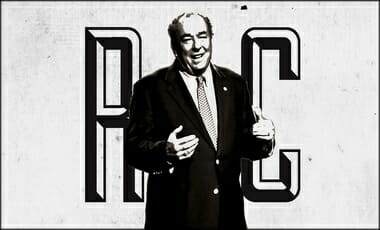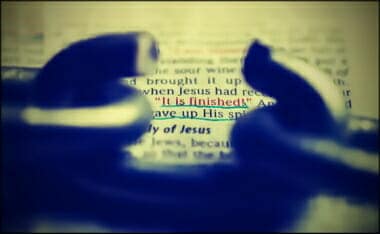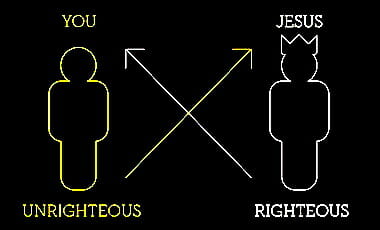The fuller service can be watched HERE.
John MacArthur


Bake My Satan Cake – Dammit!
The below is a clip from Tucker Carlson discussing with a Satanist their organization wanting a “Satanic cake” (upside down Cross and all) baked by a Christian baker. I include a short clip as well of a Christian trying to get an anti-gay cake baked, as well as Steven Crowder in Muslim owned bakeries trying to get a same-sex wedding cake baked. In each case I support the business owner.
Here is another example of how the “Cake-Fascists,” as GAY PATRIOT calls them, cannot legislate conscience — via THE DAILY SIGNAL:
The Christian baker in Colorado who was sued for declining to make a cake for a same-sex couple’s wedding reception received a strange request last month: Design and bake a cake celebrating Satan’s birthday.
“I would like to get a quote on a birthday cake, for a special event,” the email request to baker Jack Phillips, sent Sept. 30 and exclusively obtained by The Daily Signal, reads. It continues:
It is a cake that is religious in theme, and since religion is a protected class, I am hoping that you will gladly bake this cake. As you see, the birthday cake in question is to celebrate the birthday of Lucifer, or as they [sic] are also known Satan who was born as Satan when he was cast from heaven by God.
The request for Phillips to quote a price for the cake also asks for an “upside down cross, under the head of Lucifer.”
The incident exemplifies the complexity of government laws mandating that those in creative occupations violate their religious beliefs in serving clients or customers.
This is a danger that lawyers for Phillips, owner of Masterpiece Cakeshop in Lakewood, Colorado, say they’re raising before the U.S. Supreme Court, which in June agreed to take the baker’s case.
Phillips gained nationwide attention after declining to make the wedding cake for the gay couple, and eventually being found guilty of discrimination by a Colorado state agency and the courts.
Phillips has told The Daily Signal and others that his Christian faith not only doesn’t allow him to design and make cakes celebrating same-sex unions, it prevents him from designing cakes that involve such elements as witchcraft or explicit sexuality……
Here is an example of how this has even infected the last Libertarian presidential nomination process (from my post entitled: “Christians Discriminated Against By Gay Coffee Shop Owner“):
The point is that when the government gets into the weeds on HOW a person SHOULD think on matters regarding their own business… you will have chaos. This mom just ended up making it herself. Which, sorry, you may have ta do in a free country from time-to-time.
Now, WWRPTD? (What Would RPT Do). If I owned a bakery, I would bake cakes for everyone. Why? Because it would be a way to get people into a Christian environment to witness to. For instance, if a Satanist came into my hypothetical store and wanted me to bake a cake… I would. If he or she asked why a bakery such as mine with Christian symbols would do so, I would open up my visible bible to 1 Corinthians 8:4-8
Now concerning eating food offered to idols: We know that no idol is real in this world and that there is only one God. For even if there are “gods” in heaven and on earth (as indeed there are many so-called “gods” and “lords”), yet for us
there is only one God, the Father,
from whom everything came into being
and for whom we live.
And there is only one Lord, Jesus the Messiah,
through whom everything came into being
and through whom we live.
But not everyone has this knowledge. Some people are so accustomed to idolatry that when they eat food that has been offered to an idol, their conscience becomes contaminated because it is weak. However, food will not bring us closer to God. We are no worse off if we do not eat food that has been offered to an idol, and no better off if we do.
(ISV)
I had the pleasure (God’s Sovereignty) of being in the right-spot-at-the-right-time to lead a Satanist in the sinners prayer. I brought him to HEBREWS 10:4-10, and discussed why Satanism is so concerned about blood in sacrifices when it was done once-for-all-time. I would love to build relationships in order to do this. BUT, that is me! A business owner can do his business how he or she pleases.

Challenging Rome’s “Gospel” (John MacArthur)
Roman Catholic False Gospel John MacArthur
Pastor MacArthur answers the following questions about Roman Catholicism in THIS video:
1. Does church history support Romanism?
2. What about late forming Romanist doctrines?
3. Is there such as thing as apostolic succession? Does this prove Romanism true?
4. Is there circular reasoning in saying that Catholicism is infallible?
5. What is the definition of the church?
6. Does the lack of authority in diverse protestant churches prove the need for a monolithic Roman Church?
7. What about scripture alone?
8. When tradition contradicts scripture which has the authority?
9. Does the Bible teach that traditions are inspired & authoritative?
10. 2 Corinthians 5:21 – What is the true gospel?
11. Why did Jesus live a full life here on earth for 33 years?
12. How is Rome’s gospel different than the gospel of the Bible?
13. How does mass, purgatory, good works, etc take away from the true gospel?
14. What about works & James 2:24?
15. What is the difference between justification & santification?
16. Does Rome preach a false gospel & is it damnable heresy?
17. What about Romanist baptismal regeneration?
18. Can a person be saved without water baptism?
19. What about spirit baptism?
20. Has Romanism changed since Vatican II?
21. Are Roman Catholics our brothers & sisters in Christ?
22. What is wrong with the “Evangelicals and Catholics Together” document?
23. What if you are an ecumenical evangelical?

Double Imputation – Better Than A Double Rainbow
Imputed righteousness is a theological concept directly related to the doctrine of Justification. It is particularly prevalent in the Reformed tradition.
“Justification is that step in salvation in which God declares the believer righteous. Protestant theology has emphasized that this includes the imputation of Christ’s righteousness (crediting it to the believer’s “account”), whereas Roman Catholic theology emphasizes that God justifies in accord with an infused righteousnessmerited by Christ and maintained by the believer’s good works,” (Elwell Evangelical Dictionary). Imputed righteousness therefore means that upon repentance and belief in Christ, individuals are forensically declared righteous. This righteousness is not the believer’s own, rather it is Christ’s own righteousness ‘imputed’ to the believer.
A primary line of argumentation for this doctrine maintains that perfect righteousness or holiness is necessary to be with God. All mankind “fall short of the glory of God” (Rom 3:23) because all their ‘righteousness’ is like filthy rags (Is 64:6) before the throne of God, and so all are “dead in their trespasses and sins” (Eph 2:1), and as a result “will not come into [God’s] light for fear that their evil deeds will be revealed” (John 3:20). All mankind is in this predicament because all are the offspring of Adam and Eve (Rom 5) who originally sinned against God. As a result of Adam’s fall, the world was cursed and sin entered the world. But upon confession of one’s own sin and faith in Christ’s death and resurrection, the sinner is justified and counted as having the righteousness of Christ.
[….]
Imputed righteousness is one of the classic doctrines of Protestantism and traces back through the Reformers – chiefly John Calvin and Martin Luther. These men stood against the Roman Catholic doctrine of infused righteousness where the righteousness of the saints and of Christ is gradually infused to the believer through the sacraments. For the Catholic, infused righteousness either gradually dissipates as the believer takes part in worldly sins or is enhanced by good works. If the believer dies without having the fullness of righteousness, coming in part from the last rites, he or she will temporarily spend time in purgatory until the sinful status is purged from his or her record.
[….]
- Imputed Righteousness Defended, by William Romaine, preached in London, 1759
- The Doctrine of Imputed Righteousness, by John Gill
- The doctrine of Justification by Faith, through the Imputation of the Righteousness of Christ, by John Owen
- Imputed Righteousness: The Evangelical Doctrine, by R. C. Sproul
- Imputation, by B. B. Warfield
- Imputation: The Sinner’s Only Hope, by Thomas K. Ascol
- What is Imputation? (Part 1) (Part 2), by W. E. Best

Politics vs. The Kingdom of God (John MacArthur via Wretched)
The Achilles Heel of Theistic Evolution (John MacArthur)
http://www.gty.org/Blog … The Genesis record is a beautiful picture of God’s creation. Order, purpose and harmony permeate His completed work. Man relates righteously to God; Adam and Eve relate lovingly to one another; and animals dwell peacefully among them. No sign of conflict, fear, violence or death appears, until the day Adam sinned against God.
That’s a problem for evolution—a big problem.
Post your comments here: http://www.gty.org/Blog
John MacArthur Quickly Speaks To the Christians Power to Bind Satan/Demons (Demonology)
Via Life & Times:
Joel Osteen is a Pagan Religionist-Quaisi Pantheist-Jesus is a Footnote That Satisfies His Critics~John MacArthur
- 2 of 2
- « Previous
- 1
- 2